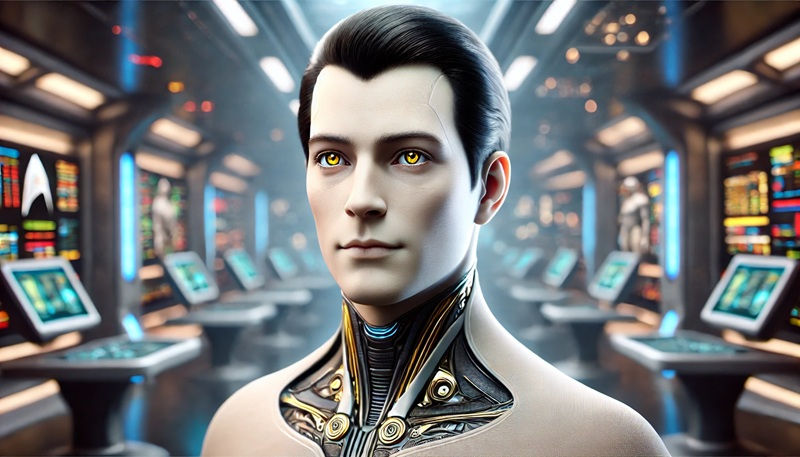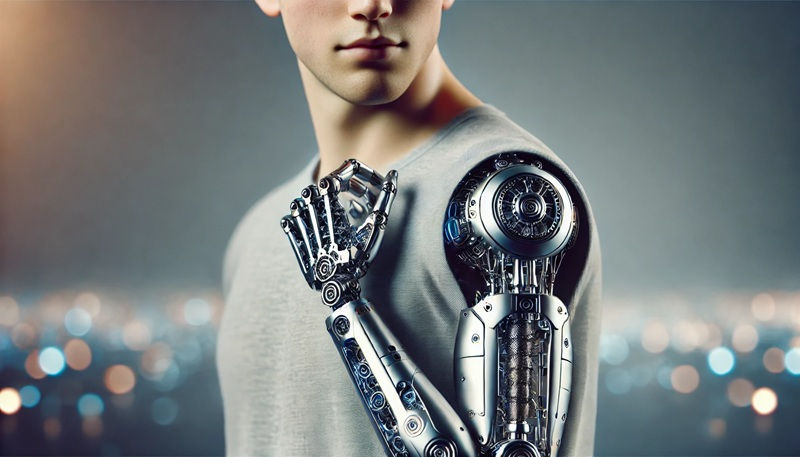Android vs Cyborg: What's the Real Difference and Why It Matters
- Evgeny Rygin
- Mar 7, 2025
- 3 min read
When discussing the fascinating blend of humans and technology, the terms "android" and "cyborg" frequently emerge, often used interchangeably. However, understanding the fundamental differences between an android and a cyborg is crucial to navigating the rapidly evolving landscape of robotics and bioengineering. Simply put, an android is a fully artificial humanoid robot designed to imitate humans, while a cyborg is a biological organism enhanced by technological components.
Android: The Fully Artificial Human
An android is a robot designed entirely from synthetic materials, resembling humans not only in appearance but also in behavior. These robots leverage advanced artificial intelligence to interact with humans realistically, showing human-like emotions, facial expressions, and speech patterns. Androids do not contain any biological components; their entire makeup is mechanical or synthetic.
One of the most well-known androids today is Sophia, developed by Hanson Robotics. Sophia gained global recognition for her realistic human interactions, demonstrating the ability to maintain conversations, express emotions, and even hold citizenship in Saudi Arabia. Sophia symbolizes the pinnacle of current android technology, blending robotics, AI, and human-like social skills, and illustrating the significant progress made in replicating human-like interactions through robotics.
Androids in Science Fiction
Science fiction has long explored the concept of androids. Characters like Data from "Star Trek: The Next Generation" and the replicants in "Blade Runner" vividly illustrate the philosophical and ethical dilemmas surrounding artificial intelligence and humanity. These stories explore what truly differentiates humans from advanced machines, particularly regarding consciousness and emotions.

Cyborgs: The Fusion of Biology and Technology
Unlike androids, cyborgs are fundamentally biological beings enhanced by technological components. These enhancements can range from simple implants designed to restore lost bodily functions to sophisticated augmentations that significantly enhance human capabilities beyond their natural limitations.
A prominent real-world example of cyborg technology includes neural prosthetics, such as advanced bionic limbs controlled directly by brain signals. Cochlear implants, which help individuals with severe hearing impairments perceive sound by translating audio signals into nerve impulses, also exemplify cyborg technologies. These real-world integrations significantly improve quality of life and demonstrate humanity's growing fusion with technology.
In popular culture, cyborgs are prominently depicted through iconic figures like RoboCop, who becomes part machine after severe injuries, raising questions about identity and morality. Another notable example is Major Motoko Kusanagi from "Ghost in the Shell," who grapples deeply with issues of identity, humanity, and self-awareness in a technologically integrated world.

Android vs Cyborg: The Core Differences
When considering "android vs cyborg," the fundamental distinctions lie in their origin and composition. Androids are entirely artificial creations without biological components, built primarily to mimic human behavior and appearance. In contrast, cyborgs originate as biological beings whose natural abilities have been augmented or restored through technology.
Moreover, cyborgs maintain their human consciousness and individuality, with technology serving as supportive enhancements rather than defining their identity entirely. Androids, however advanced their artificial intelligence may become, remain synthetic entities whose "personality" and behavior are programmed rather than organically developed.
Ethical and Societal Implications
The continued advancement of android and cyborg technologies brings forth numerous ethical considerations. For instance, if androids develop genuine emotional responses or self-awareness, should society recognize their rights? Furthermore, the increased integration of technology within the human body poses questions about autonomy, privacy, and potential inequalities between technologically enhanced and non-enhanced individuals.
Moreover, society faces critical questions regarding the boundaries of technological enhancements. Could extensive cybernetic enhancements lead to dependency, or even fundamentally change what it means to be human? Addressing these questions now is vital as we advance further into an era of bioengineering and artificial intelligence.
The Future of Androids and Cyborgs
As technology rapidly progresses, the distinctions between humans, cyborgs, and androids may blur further. The convergence of AI, robotics, neuroscience, and biotechnology suggests a future where humans routinely incorporate technological enhancements to augment physical and cognitive abilities. Simultaneously, androids could become sophisticated enough to interact seamlessly within human societies, undertaking tasks traditionally reserved for humans.
In conclusion, the ongoing debate around "android vs cyborg" isn't merely academic but profoundly influences our perception of humanity's future. Understanding these differences and implications is essential as we stand on the brink of a new era where the boundaries between humans and machines become increasingly intertwined.




Comments